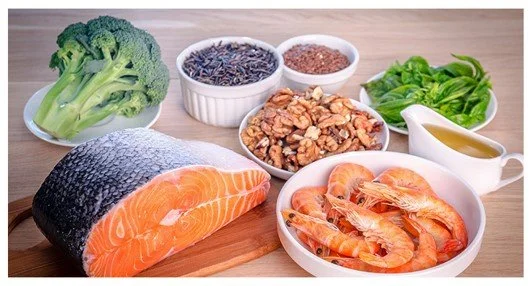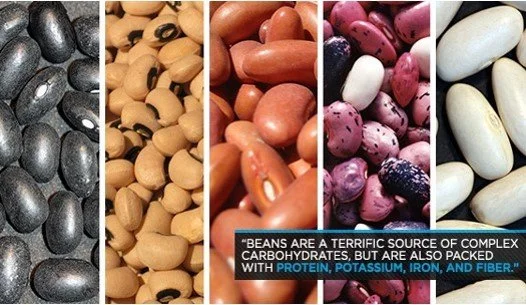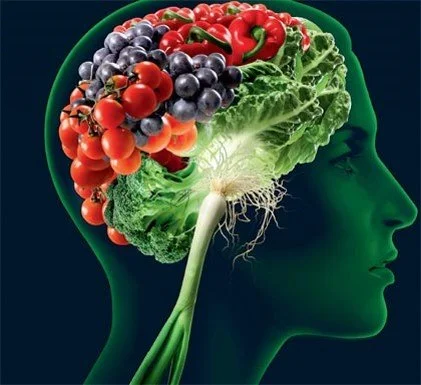You Really Are What You Eat: How Nutrition Impacts Mind, Body, and Soul
Let’s face it — navigating the world of nutrition today can feel overwhelming. With so much information available online, it’s easy to find conflicting advice: one source praises a certain food, while another warns against it. The sheer volume of opinions and so-called “expert” advice makes it difficult to know what’s truly best for your body.
Back in the 90s, nutrition seemed simpler. We had the food pyramid, which told us to load up on bread, cereal, rice, and pasta. Looking back, it’s no surprise heart disease rates were so high. Thankfully, nutritional science has come a long way. In 2011, the USDA replaced the outdated pyramid with the “MyPlate” model — but the truth is, nutrition is far more complex than a pie chart of food groups.
In reality, what we eat affects every system in the body — not just physically, but mentally and emotionally as well. The phrase “you are what you eat,” made famous nearly a century ago, is more accurate now than ever.
The Food-Mood Connection
My own understanding of nutrition’s impact on mental health began during my first semester in chiropractic school. I read a book called The Crazy Makers by Carol Simontacchi, and it was a game-changer. The book exposes the damaging effects of processed foods and artificial additives on children's brain chemistry — connecting these ingredients to rising rates of ADHD, childhood obesity, depression, and even autism.
Fortunately, in the years since, I’ve seen a shift. Parents and health-conscious individuals alike are becoming more aware of what’s in their food. Organic options are more accessible, and more people are questioning the presence of GMOs and harmful additives in their diets. It’s a hopeful sign — one that supports a more mindful, balanced approach to wellness.
Dr. Kevin’s Food Tips for Total Wellness
Want to feel better physically and mentally? Start with your plate.
Feeling Low or Anxious? Eat More Omega-3s
If you struggle with mood swings, depression, or anxiety, you may be lacking key fatty acids. Research shows that people with low levels of EPA (a type of omega-3) are more likely to experience symptoms like insomnia, low energy, and sadness. Just 1 gram of fish oil a day has been shown to reduce these symptoms by up to 50%.
Where to get it:
Fish oil supplements
Wild-caught salmon or tuna
Walnuts and flaxseeds
Need More Energy? Power Up With the Right Carbs + Protein
Real energy doesn’t come from sugar or caffeine — it comes from complex carbohydrates paired with protein and fiber. These foods keep blood sugar stable, promote satiety, and support muscle repair.
Best foods for energy:
Quinoa and brown rice
Whole wheat bread
Soybeans, beans, and lentils
Oatmeal with low-fat milk
Low-fat yogurt or kefir (with probiotics)
Spinach — packed with magnesium, iron, and potassium
Pro tip: Add a handful of fresh spinach to your morning smoothie. It blends in easily and fuels your cells naturally.
Want to Boost Brain Function? Feed Your Mind
Certain foods have been scientifically shown to improve cognitive performance and protect against mental decline. If focus, memory, or brain fog are concerns for you, try incorporating more of these “smart foods” into your diet:
Brain-boosting superfoods:
Blueberries: May slow age-related mental decline and improve motor skills
Tomatoes: Rich in lycopene, which protects brain cells
Avocados: Support healthy blood flow and lower blood pressure
Broccoli: High in vitamin K, known to enhance brain function
Leafy greens (like lettuce): Improve circulation to the brain
Tip: Keep avocado servings to ¼–½ a day to balance the healthy fat content.
Final Thoughts
Nutrition isn’t about perfection — it’s about intention. Small daily choices can make a huge difference in how you feel physically, mentally, and emotionally. As a chiropractor and wellness practitioner, I believe healing happens on all levels. Nutrition is one of the most powerful tools we have to create balance across the mind, body, and soul.
Start where you are, build one habit at a time, and remember: the food you eat today shapes how you feel tomorrow.





